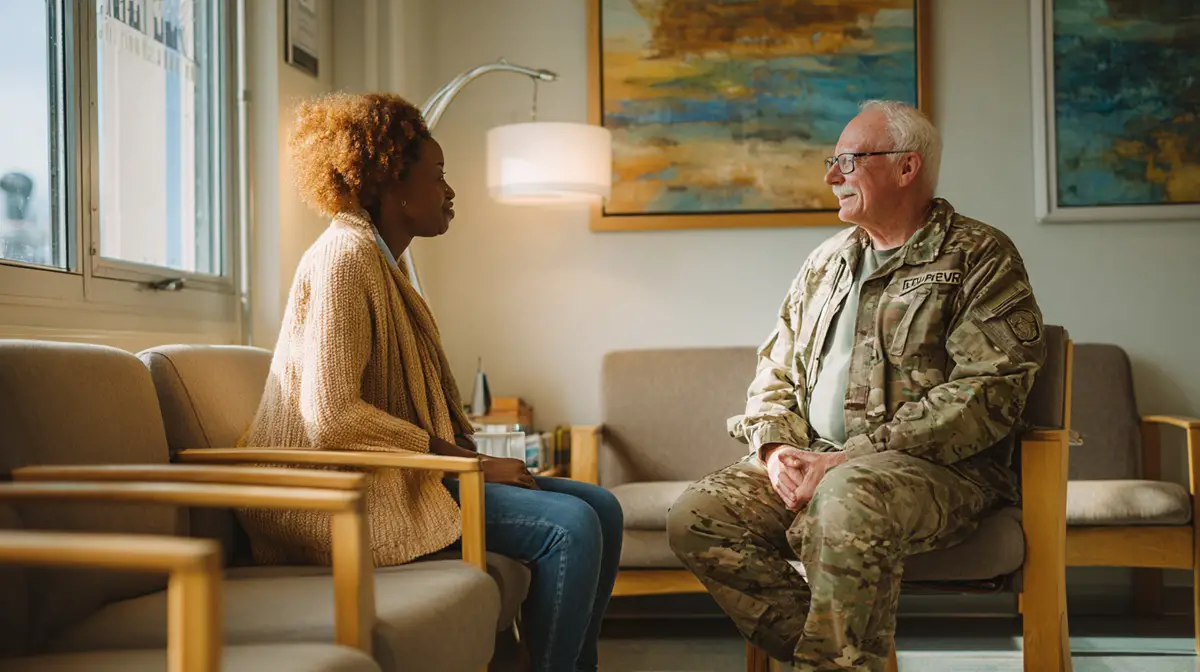Getting the Support You Deserve After Military Service

Transitioning from military to civilian life can have numerous challenges, but good support systems exist to help veterans go through this journey. Understanding the available resources and how to access them guarantees that you receive the assistance you’ve earned through your service.
1. Health and Wellbeing: Getting Specialist NHS Support
Veterans can access dedicated NHS services designed specifically for the Armed Forces community through Op COURAGE, the comprehensive mental health and wellbeing service. This specialist provision offers support for mental health conditions, substance misuse, and psychological trauma, with staff who understand military culture. According to NHS England data from 2024, over 30,000 referrals have been made to veterans’ mental health services since 2017, with more than 4,500 referrals between April and November 2023 alone. Veterans can self-refer to Op COURAGE or obtain referrals through their GP, regardless of how long ago they left service or the length of their military career.
2. Financial Redress if You Were Injured Because of Service
The Armed Forces Compensation Scheme (AFCS) provides financial support for injuries or illnesses caused by service after 6 April 2005, whilst the War Pension Scheme covers conditions arising from earlier service. The AFCS operates on a no-fault basis with compensation determined by tariff levels ranging from £1,236 to £650,000, depending on injury severity. Recent government reviews have highlighted the need for improvements in the claims process, with the 2024 House of Commons Library analysis noting that while the government accepted recommendations to improve communication, some key reforms were rejected. Veterans typically need medical evidence supporting their claim, and applications are usually processed within six months. If your injury or illness was caused by service, independent advisers or specialist solicitors can explain your AFCS options and whether any military claims in the civil courts are appropriate for your circumstances.
3. Housing and Urgent Practical Help
Veterans facing homelessness or housing difficulties can access support through Op FORTITUDE, the UK-wide referral pathway specifically designed for ex-service personnel. This service accepts self-referrals and referrals from local authorities, charities, or prison and probation services, guaranteeing good coverage for veterans in crisis. Op FORTITUDE coordinates with existing housing support services and provides rapid response for urgent situations, recognising that stable accommodation is the basis for successful civilian transition.
4. Work, Training and Life After Service
The Career Transition Partnership (CTP) offers extensive support for service leavers, providing careers advice, training opportunities, and job placement assistance during resettlement and up to two years after discharge. This service recognises that military skills often translate effectively to civilian roles but might need reframing for civilian employers. CTP programmes include CV writing, interview preparation, and networking opportunities with employers who actively recruit veterans, helping bridge the gap between military experience and civilian career opportunities.
These support systems exist because society recognises the sacrifices made by military personnel. Accessing available resources is an entitlement earned through service. Veterans shouldn’t hesitate to seek help when needed, as these programmes are specifically designed to guarantee a successful transition to civilian life whilst maintaining the dignity and support that military service deserves.










